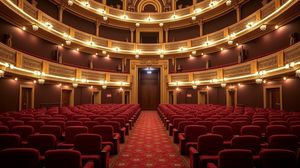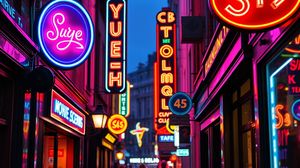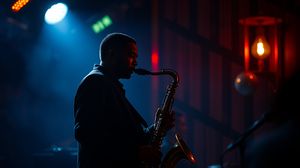
The Apollo Theatre, located on Shaftesbury Avenue in Soho, London, is an iconic West End venue with a rich history dating back to its opening in 1901. Designed by architect Lewin Sharp, the theatre is known for its stunning Baroque architectural style, which includes elegant horsehoe-shaped balconies and ornamental detailing that captures the grandeur of the Edwardian era.
The Apollo Theatre gained a measure of fame as the venue for the long-running play "The Curious Incident of the Dog in the Night-Time," which experienced a unique event when part of its ceiling collapsed mid-performance in 2013. Fortunately, no one was seriously injured, but this incident led to a fascinating renovation of the theatre, ensuring it met modern safety standards while preserving its historical charm.
Interestingly, the Apollo Theatre boasts an unusually steep auditorium, which offers audiences an intimate experience with excellent sightlines from virtually every seat. This design feature accentuates the feeling of being close to the action, enhancing the overall theatrical experience for visitors.
The venue has hosted a variety of performances, from classic dramas and comedies to contemporary productions and musical events. The Apollo's stage has been graced by performances from legendary actors, contributing to its reputation as a beloved cultural landmark that continues to draw visitors from around the world.
Alongside its theatrical offerings, the Apollo Theatre is known for its enduring commitment to high-quality productions, which have earned it numerous accolades over the years. Its enduring legacy and dynamic programming make it a must-visit destination for theatre enthusiasts exploring London's vibrant cultural scene.

Making the Most of Your Visit:
Make sure to arrive a bit early to admire the exquisite architectural details both inside and out. The Baroque style, with its ornate plasterwork and grand balconies, is truly a sight to behold and adds to the overall experience.
When booking your seat, consider aiming for the Stalls or the front of the Dress Circle for the best view. Because the theatre has a steeply raked auditorium, these areas offer an excellent perspective, making you feel right in the middle of the action.
Take advantage of the nearby Soho neighborhood for pre-show or post-show dining. This lively district is packed with fantastic options ranging from casual eateries to upscale restaurants – perfect for grabbing a meal before catching your show.
If you're attending a show at the Apollo, be prepared for some delightful surprises in terms of production quality and creativity. The theatre is known for hosting dynamic and inventive shows, which often include unexpected elements that enhance the storytelling.
Check out the theatre's history with the famous ceiling incident from 2013 after you've seen a show. It's part of the Apollo's fascinating past, adding to the sense of theatre lore you're a part of when visiting.

Visiting Times & Costs:
The Apollo Theatre, located on Shaftesbury Avenue, is open to the public whenever performances are scheduled. The theatre operates throughout the year, hosting a variety of shows including plays, musicals, and special events.
Opening Hours: The theatre typically opens to patrons before the start of a scheduled performance. It is advisable to check the performance schedule in advance for specific dates and times.
Ticket Prices: Ticket prices for performances at the Apollo Theatre vary depending on the production, the seating area, and the time of booking. It is best to consult the official venue or ticketing websites for the most accurate and up-to-date information.
Accessibility: The Apollo Theatre strives to be accessible to everyone. Wheelchair spaces are available in the auditorium, and there are accessible toilet facilities. Additionally, the theatre provides services for patrons with hearing and visual impairments. It is recommended to inform the theatre of any specific accessibility requirements when booking tickets to ensure the best possible experience.
Please note that while the theatre itself can be explored during performance times, entrance to the auditorium is generally limited to ticket holders for scheduled shows.

Address & Map:

Nearby:























